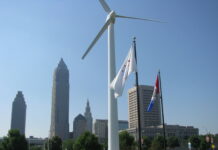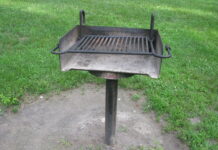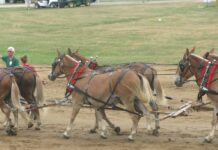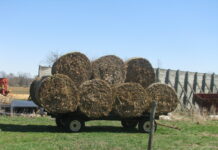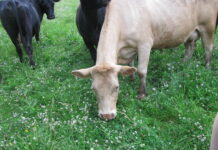Photo credit: DiasporaEngager (www.DiasporaEngager.com).
When I was a child, being Jewish was cool. Hanukkah had eight nights, instead of one day for Christmas. Rosh Hashanah and Yom Kippur were days I was able to skip school. Friends would tell me, “I wish I was Jewish.”
I don’t think they would say that now.
Both sides of my family immigrated to the United States so they could enjoy religious and cultural freedom without fear of persecution. In the 1700s, relatives from my mother’s side gave up their freedom to become indentured servants in America, so that they could escape persecution in England and comfortably practice their religion.
My great grandfather on my father’s side, after receiving a tip from a non-Jewish friend about the rise of the Nazis, left Poland with his family, and made the treacherous journey to seek refuge in the Jewish homeland. They came to Tel Aviv, and my grandfather grew up in the state of Israel. Eventually, my grandparents moved to New York so that they could raise their children in a place where they didn’t have to defend their existence as Jews against those trying to destroy our Jewish homeland. They found solace in New York, where my family became part of a tight-knit Jewish community.
My mom converted to Judaism in her early twenties before marrying my American Israeli dad. She related to the spiritual aspects of Judaism and its values, and wanted to raise my brother and me in a Jewish home.
Because they could practice Judaism proudly and safely, my parents thought that my brother and I would grow up in safety as a Jewish American.
But they were wrong.
In high school, I noticed that the “cool” part of my identity began to distance me from my peers. My friends — who previously claimed that they loved latkes — drew swastikas on the wall of our math class. They said nothing when a group of students in our JROTC program started a neo-Nazi chapter, publicly singling out Jewish students on Instagram.
I watched as these same students, who had once supported my Jewish identity and celebrated it with me, rejected me as soon as it became the social norm to do so.
I watched them sit silently when there was a shooting at the Chabad of Poway synagogue in my hometown of San Diego. They turned their backs on discrimination against Jews, and were silent as I watched the repercussions of their inaction grow — including armed guards at my synagogue, and fear for our lives as those who want to practice our religion publicly.
As I started college at UC Davis, I hoped for a better climate for Jewish people. My peers seemed so determined to stand up against hate directed towards minorities. They showed tolerance towards everyone’s world views, taking into account the definitions each group set for themselves, avoiding stereotypes, and carefully defining hateful words and actions by how they impacted the recipients.
Until those hurtful words came for the Jews.
My campus has become two places for me. First, the Jewish community at UC Davis has brought me closer to my Jewish identity. I can walk to Hillel and find comfort as a Jew. I have friends who, while not Jewish themselves, have been tireless in their dedication to understanding my culture and religion, and have stood by my side without hesitation since October 7. My Jewish community showed up in the hundreds to a vigil for our Jewish brothers and sisters in Israel after the biggest pogrom against Jewish people since the Holocaust.
Yet there is the other side of UC Davis that makes me wonder why the families I descend from thought we would be safe here. Within a week after the October 7 massacre, in front of the Student Senate and approximately 50 radical protesters, Jewish students relayed our most vulnerable feelings about our families being under attack, and about girls my age being sexually assaulted. While we mourned and expressed our grief, the protestors laughed and gas-lit us, denied our Jewish pain and history, and downplayed the violence our community had not seen since the Holocaust — when, in fact, it was that kind of antisemitism that eventually led to the Holocaust in Europe.
Far too many of my peers didn’t say anything in response to their Jewish friends crying for support. Doors were shut in our faces, and closed to our perspective. As we listened to former friends chanting, “We don’t want no Jewish state,” Jewish students learned and felt the fear that our families had come to America to protect us from.
After a month, I hoped the trend would move on, just like every movement tends to. But the protests got worse. I began avoiding sections of campus. I would self-censor and only have conversations about Jewish life within the walls of Hillel, where I felt safe behind the secured doors. I felt, and still feel, a sword digging into my heart, every day, turned by the hand of a society that fails to recognize how its normalization of antisemitism has led to a war-zone on college campuses.
On my college campus, my peers and I are yelled at, flipped off, and physically kicked and pushed for being Jewish and standing with our ancestral homeland. While many of our peers call for people to not even speak to me, I cry out for anyone to even consider my voice.
I’m left to wonder, am I safe as a Jew in America?
Source of original article: Carly Klinger / Opinion – Algemeiner.com (www.algemeiner.com).
The content of this article does not necessarily reflect the views or opinion of Global Diaspora News (www.GlobalDiasporaNews.com).
To submit your press release: (https://www.GlobalDiasporaNews.com/pr).
To advertise on Global Diaspora News: (www.GlobalDiasporaNews.com/ads).
Sign up to Global Diaspora News newsletter (https://www.GlobalDiasporaNews.com/newsletter/) to start receiving updates and opportunities directly in your email inbox for free.




